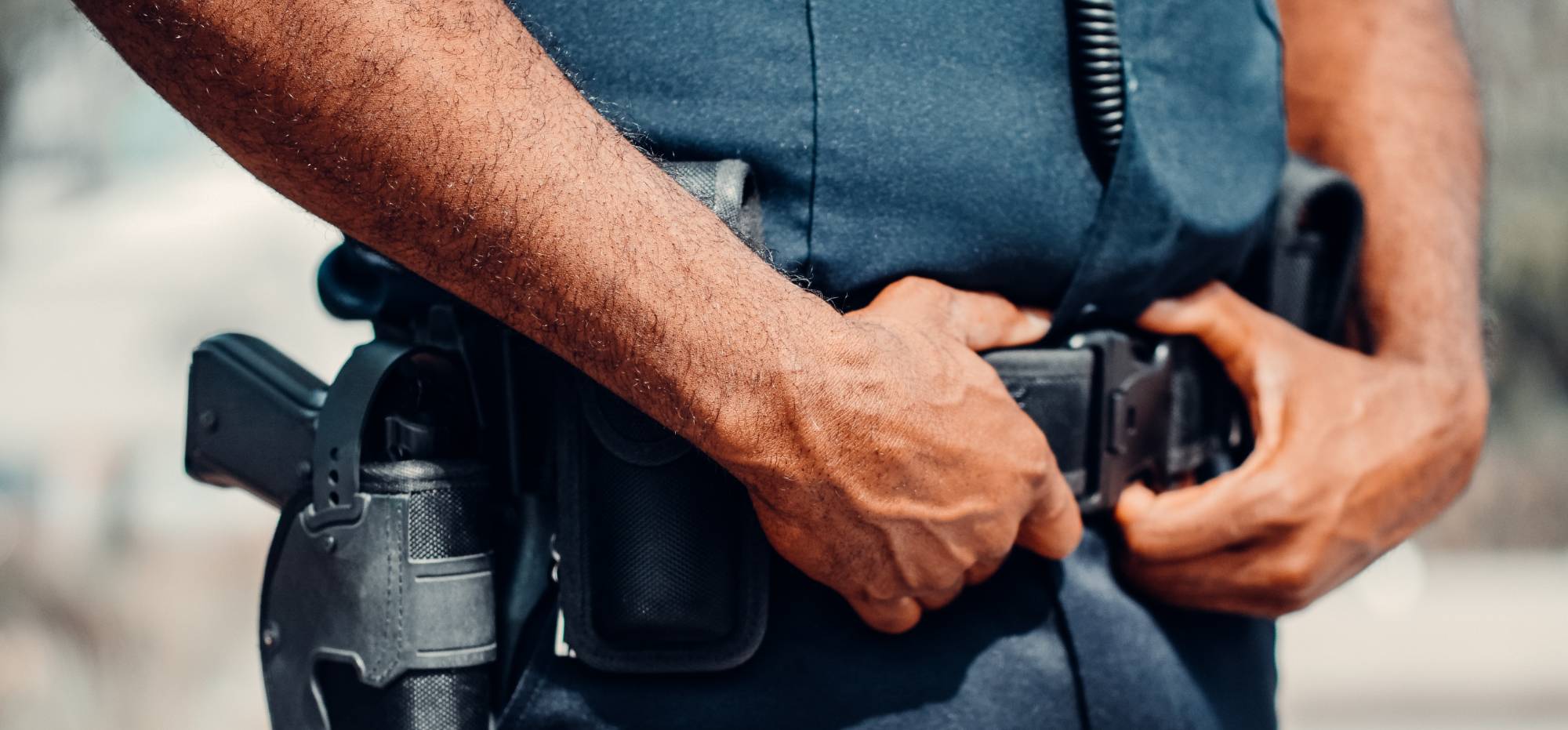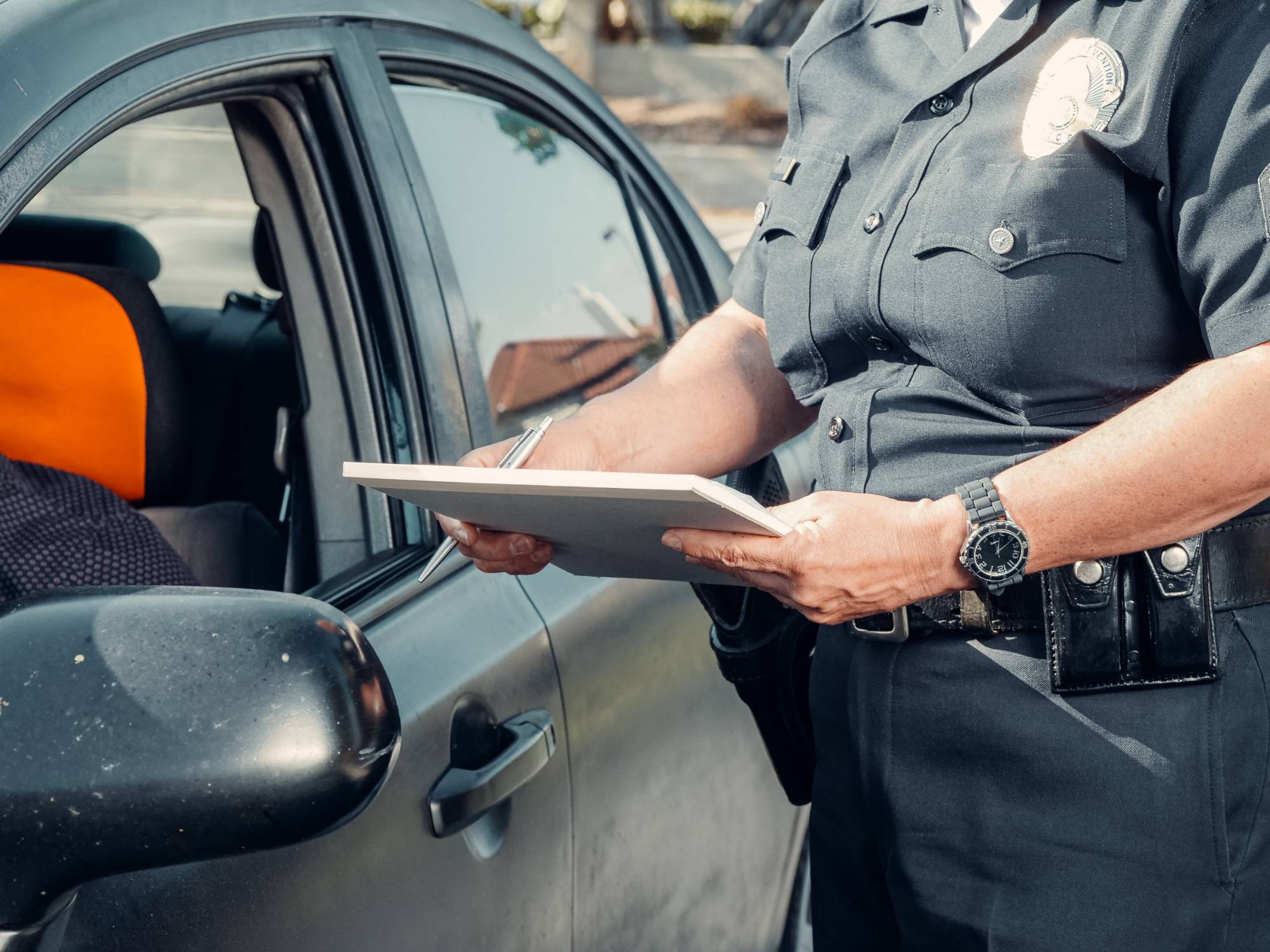
Law Enforcement Academy (Limited Access Program)
Your Path to Success
To be a law enforcement officer in the State of Florida, you must first complete a
Florida Department of Law Enforcement (FDLE) approved academy, offered by one of the
Regional Training Centers. The Daytona State College’s School of Emergency Services
is an FDLE certified Training Center, providing top-notch training for future law
enforcement professionals.
Choosing to attend a law enforcement academy is more than just a step toward a career—it's
a commitment to making a tangible difference in your community. Here’s why pursuing
this path can be exceptionally rewarding:
- Make a difference: As a police officer, you will play a critical role in maintaining public safety and order, helping improve the quality of life in your community.
- Help others: Your duties will often involve assisting individuals in crisis, contributing to crime prevention, and supporting victims of crime, providing a deep sense of fulfillment.
- Explore diverse opportunities: The field offers various paths for specialization, such as detective work, K-9 units, SWAT, and community policing, allowing you to tailor your career to your interests.
- Advance your career: With experience and additional training, you can advance to higher ranks and leadership positions, continually growing and evolving in your career.
- Stay active and engaged: The role often involves being outdoors and staying active, ideal for those who prefer a physically engaging and varied work environment.
At Daytona State’s Law Enforcement Academy, you will receive comprehensive training
covering all aspects of law enforcement. Upon successfully completing the academy,
you will be eligible to take the State Officer Certification Examination (SOCE). Passing
this examination qualifies you for employment as a law enforcement officer anywhere
in the State of Florida.
Please note that admission to Daytona State College does not guarantee entrance into
this limited access program.
Embark on a career that offers not just job security and benefits, but also the opportunity
to make a real difference in the world. Join us at the School of Emergency Services
and start your journey toward becoming a respected law enforcement officer.
Start your path with the Law Enforcement Academy
career options
- Bunnell Police Department
- Daytona Beach Police Department
- Daytona Beach Shores Department of Public Safety
- DeLand Police Department
- Edgewater Police Department
- Flagler County Sheriff's Office
- Flagler Beach Police Department
- Florida Fish & Wildlife Conservation Commission
- Florida Highway Patrol
- Holly Hill Police Department
- Lake Helen Police Department
- New Smyrna Beach Police Department
- Orange City Police Department
- Ormond Beach Police Department
- Ponce Inlet Police Department
- Port Orange Police Department
- Saint Augustine Beach Police
- South Daytona Police Department
- Seminole County Sheriff's Office
- St. Augustine Police Department
- Volusia County Sheriff's Office

Additional Information about the Florida Law Enforcement Academy
Program Information
Interested in becoming a Law Enforcement Officer? View the minimum requirements, course description and tuition below.
-
Minimum Requirements Requirements to be employed as an Officer in Florida
Below are the minimum requirements as per Florida State Statute, Florida Administrative Code and Daytona State College Criminal Justice Training Center.
-
Be at least 19 years of age for law enforcement and correctional probation.
-
Be at least 18 years of age for corrections.
-
Be a citizen of the United States.
-
Have earned a high school graduate or equivalent (GED). (A bachelor’s degree is required for correctional probation officers.)
-
Have not been convicted of any felony or of any misdemeanor involving perjury or a false statement.
-
Any person who, after July 1, 1981, pleads guilty or nolo contendere to, or is found guilty of any felony or of a misdemeanor involving perjury or a false statement, shall not be eligible for employment or appointment as an officer, not-withstanding suspension of sentence or withholding of adjudication.
-
Have never received a dishonorable discharge from any of the Armed Forces of the United States.
-
Have good moral character.
-
Have passed a Commission approved Basic Abilities Test, if not certified and attending a Florida Basic Recruit Training Program. A BAT is not required for correctional probation.
-
Have successfully completed the Florida Basic Recruit Training Program for the respective discipline or completed the Equivalency of Training process.
-
Have achieved a passing score on the State Officer Certification Examination.
-
Have been fingerprinted by the employing agency with prints processed by the FDLE and the FBI.
-
Have successfully passed a background investigation, to include drug testing.
-
Have passed a physical examination by a licensed physician, physician assistant, or certified advanced registered nurse practitioner, to include an EKG and drug screen
-
Currently possess a valid driver's license.
- Students will be held accountable for the policy and procedures of the Criminal Justice Training Center Program as outlined in the CJTC student policy/rule book, as well as the college student handbook.
-
-
Tuition & Fees Law Enforcement Academy Costs
This program is eligible for federal financial aid and state Bright Futures Scholarship Program.
Approximate Additional Costs
Program Tuition and Fees*: $2,111
Access Fee: $29.78 ($1.16 per credit)
Assessment Fee: $34 (First Semester Only)
Lab Fees: $409
FDLE BAT Exam: $40
Physical Exam: $150 to $250
Textbook/Equipment/Uniforms: $800
Graduation Fee: $10
State Exam: $100*In-State tuition only; out-of-state tuition will be higher.
-
Course Outline Law Enforcement Academy Courses
This program is certified by the Criminal Justice Standards and Training Commission, Florida Department of Law Enforcement. Courses include the following topics:
Introduction to Law Enforcement Communication Legal Interviewing and Report Writing CMS Law Enforcement Vehicle Operations Serving Your Community CMS First Aid for Criminal Justice Officers CMS Criminal Justice Firearms Criminal Justice Defensive Tactics Fundamentals of Patrol Crimes Against Persons Crimes Involving Property and Society Crime Scene Follow-up Investigations Traffic Incidents Traffic Stops Traffic Crash Investigations DUI Traffic Stops Critical Incidents Law Enforcement Officer Physical Fitness Training Conducted Electrical Weapon/Dart-Firing Stun Gun




